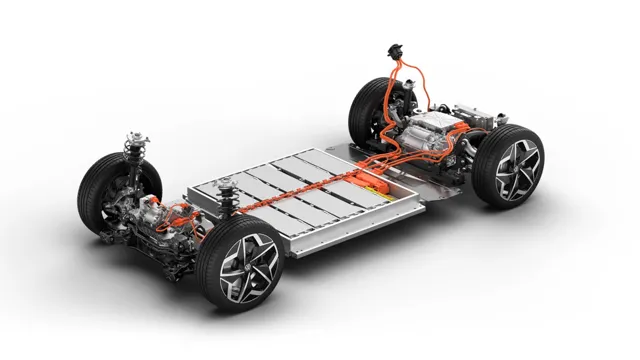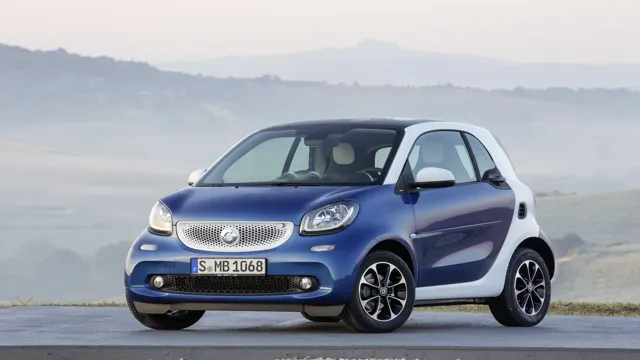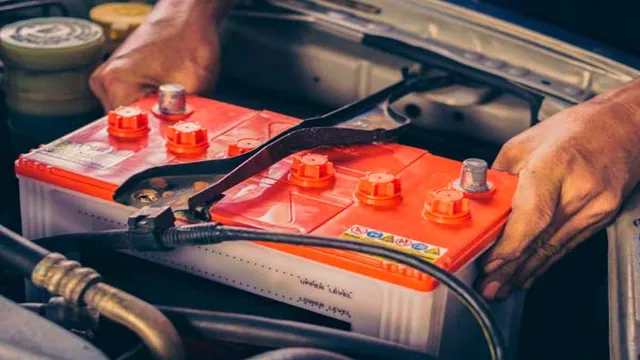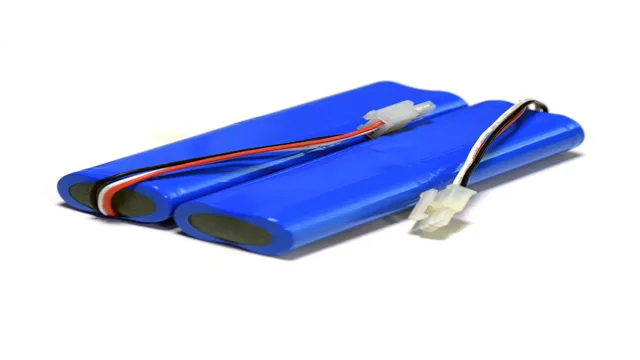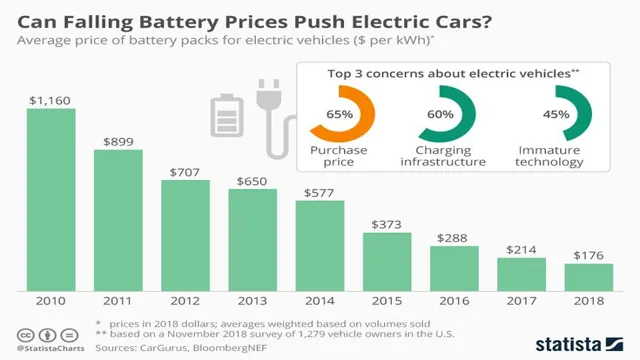Reviving the Power: Upgrading Battery Capacity for Electric Car Conversions
Are you thinking about converting your gas-guzzler into an electric car? Well, congratulations on taking a step towards eco-friendliness! However, before you start converting, it’s essential to take a closer look at the battery capacity—the heart of an electric car. The battery’s capacity determines how far your electric car can travel on a single charge. Therefore, it’s crucial to ensure you have the right battery to meet your electric vehicle’s range needs.
The conversion process can be a bit daunting, but it’s all worth it when you’re cruising down the road without a care in the world, knowing you’re reducing your carbon footprint. But, what should you consider when evaluating battery capacity? What factors influence an electric car’s battery range? Don’t worry; we’ve got you covered. In this blog, we’ll cover all things related to electric car conversion battery capacity, including factors like the battery size, weight, cost, and chemistry.
Whether you want to convert a vehicle yourself or opt for a professional conversion service, understanding battery capacity is critical to creating an efficient, functional, and sustainable electric vehicle.
Understanding Battery Capacity
When it comes to an electric car conversion, it is crucial to understand battery capacity in order to ensure optimal performance. Battery capacity is essentially the amount of energy that a battery can store, typically measured in kilowatt-hours (kWh). The higher the battery capacity, the longer the vehicle can travel on a single charge.
It is important to select a battery with the appropriate capacity for your specific conversion project, based on factors such as the weight of the vehicle, desired range, and driving conditions. It’s important to bear in mind that higher capacity batteries can also be heavier, which could impact the overall weight of the vehicle and potentially affect performance. Investing in a high-quality battery with sufficient capacity can maximize the efficiency and performance of your electric car conversion, ultimately leading to a more satisfying driving experience.
What is battery capacity?
Battery capacity is a term used to describe the amount of electrical energy that a battery can store. It’s important to understand that battery capacity isn’t the same as battery life. Battery life refers to the amount of time that a battery can power a device before it needs to be recharged or replaced.
Battery capacity, on the other hand, refers to the amount of energy that a battery can store, and it’s typically measured in watt-hours (Wh) or milliampere-hours (mAh). So if you have a battery with a capacity of 4500mAh, it means that the battery can supply a current of 4500 milliamperes for one hour. The higher the capacity of a battery, the longer it will last, assuming the power consumption rate of the device remains the same.
However, it’s essential to note that the actual battery life varies depending on usage patterns and the type of device. So, when buying a device with a rechargeable battery, understanding the battery capacity is essential to ensure you know how long the battery will last, and you can plan accordingly.
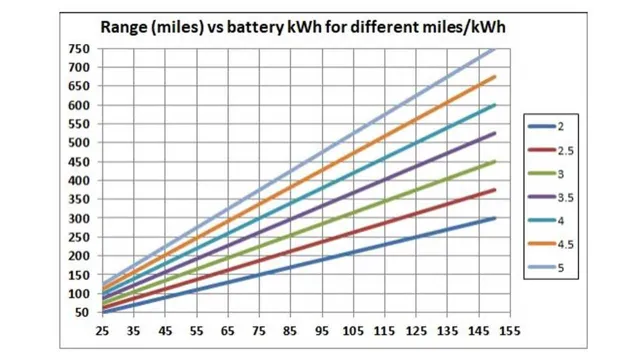
How is battery capacity measured?
Battery capacity is the amount of electric charge that a battery can store. It is measured in units of Ampere-hours (Ah) or Milliampere-hours (mAh). To calculate the battery capacity, we multiply the battery’s current by the time it can sustain that current.
For instance, a battery with a capacity of 2000mAh can deliver 1A of current for two hours or 2A of current for an hour. However, factors like temperature, age, and battery chemistry can affect the capacity. Therefore, the manufacturer’s stated battery capacity is often an idealized figure that may differ from what we experience in real-world scenarios.
Understanding battery capacity is essential when choosing the right battery for your device or designing battery-powered systems.
Factors affecting battery capacity
Battery capacity is a critical factor in determining the performance of any battery. It refers to the total amount of energy that a battery can store before it needs to be recharged. The capacity of a battery is affected by several factors, such as the battery chemistry, temperature, and ageing.
The chemistry of the battery affects its voltage, charge, and discharge rates, which, in turn, determines its capacity. Temperature also has a significant impact on battery capacity. High temperatures can reduce capacity, while low temperatures can increase it.
Moreover, ageing is also a crucial factor in battery capacity. As the battery deteriorates over time, its capacity reduces, and eventually, it becomes unusable. Therefore, understanding these factors affecting battery capacity is crucial in choosing the right battery for your device and ensuring optimal performance.
Choosing the Right Battery Capacity for Electric Car Conversion
When it comes to converting your car to electric, choosing the right battery capacity is crucial. You want to make sure you have enough power to meet your driving needs without sacrificing range. Battery capacity is measured in kilowatt-hours (kWh), and the higher the capacity, the more energy your car can store.
A larger capacity battery will provide you with a longer range, but will also be heavier and more expensive. It’s important to consider your budget and driving habits when choosing the right battery capacity for your electric car conversion. If you mainly use your car for short trips around town, a smaller battery might be all you need.
However, if you frequently travel long distances, a larger battery will be necessary to ensure you have enough power to make it to your destination. Ultimately, the best battery capacity for your electric car conversion will depend on your individual needs and circumstances.
Determine the Range You Need
When it comes to converting your vehicle to electric, one of the most important factors to consider is battery capacity. You need to determine the range you need in order to choose the right battery for your electric car conversion. This means figuring out how many miles you typically drive on a daily basis, as well as any longer trips you may take.
Once you have an idea of your driving habits, you can then look for batteries with the appropriate capacity to meet your needs. Keep in mind that a larger battery will give you more range, but it will also be heavier and more expensive. It’s important to find the right balance between range and cost, so you can enjoy the benefits of electric driving without breaking the bank.
Consider Your Driving Habits
When converting a gas car to an electric vehicle, it’s essential to select the right battery capacity based on your driving habits. If you frequently take long road trips, you’ll need a larger battery capacity to ensure you can travel comfortably without having to stop every few hours to recharge. On the other hand, if you only use your car for short trips around town, a smaller battery capacity may suffice.
It’s crucial to consider your driving needs when selecting a battery capacity, as it can significantly impact your overall driving experience. Additionally, the type of battery you choose can affect your car’s weight, power, and overall range, so it’s essential to work with a trusted technician to ensure you make an informed decision. Ultimately, the right battery capacity is critical to achieving maximum efficiency and getting the most out of your electric car conversion.
Assess Your Budget
When it comes to converting a gasoline car into an electric car, one of the most important factors to consider is the battery capacity. You want to make sure that you choose a battery that has sufficient capacity to power your car and give you the range you need. Assessing your budget is a crucial step in determining the right battery capacity for your electric car conversion.
While larger capacity batteries may provide longer ranges, they also tend to be more expensive. Thus, it’s crucial to consider the size of your budget when making this decision. You don’t want to overspend on a battery that will exceed your financial capacity.
At the same time, choosing a battery with a lower capacity may limit the range of your electric car. So, it’s all about finding the right balance between budget and range. It’s best to consult with an expert who can guide you through the process and help you choose the best battery that will meet your needs.
In short, the keyword for this topic is “battery capacity” and it’s essential to assess your budget before making your decision.
Most Popular Electric Car Conversion Battery Capacity
When it comes to electric car conversions, people often wonder about the ideal battery capacity for their vehicle. Based on current trends and expert recommendations, most electric car conversions require battery capacity ranging from 24 kWh to 30 kWh. However, it’s important to note that individual preferences and driving needs may vary.
A higher battery capacity offers a longer driving range, but it also comes with a higher cost. On the other hand, a smaller battery capacity may be more affordable, but it may require more frequent charging. Ultimately, it’s up to the individual to decide the right balance between battery capacity and affordability.
But with the rapidly advancing technology and decreasing prices of electric car batteries, it’s becoming easier to make the switch to electric vehicles.
200-400V
Electric car conversions have been becoming increasingly popular in recent years for a number of reasons, including the environmental benefits and the ability to save money on gas while still being able to drive a car. One of the most important factors to consider when it comes to electric car conversions is the battery capacity, which is typically measured in volts. Among the most popular electric car conversion battery capacities is the 200-400V range, which is capable of providing ample power to run the car reliably without weighing it down with excess weight.
This voltage range strikes a good balance between the need for power and energy efficiency, making it an attractive choice for many electric car enthusiasts. With the right battery and motor, a 200-400V electric car conversion can be a highly efficient and cost-effective way to reduce your carbon footprint and enjoy a smooth, high-performance ride. So if you’re looking to make your car more eco-friendly, consider looking into the 200-400V battery range for your conversion project.
100-300Ah
When it comes to electric car conversion, one of the most crucial decisions you’ll make is the battery capacity you’ll need. Between 100-300Ah is considered the sweet spot and the most popular range among converts. This capacity offers the right balance between energy density, range, and affordability.
With a battery capacity of between 100-300Ah, you can easily convert a light or mid-size vehicle and enjoy satisfactory performance levels. However, it’s essential to note that several factors determine the suitable battery capacity for your electric car conversion. These include the weight of your vehicle, your daily driving distance, the terrain you’ll mostly cover, and the desired driving range.
For instance, if you plan to use your electric car strictly for inner city driving, then a lower battery capacity such as 100Ah is ideal. On the other hand, if you plan to drive long distances or tackle hilly and mountainous terrains, then consider a higher battery capacity. Moreover, a higher battery capacity often means higher costs, so consider your budget when choosing a battery capacity.
Consider your needs and preferences holistically. Higher capacities may offer more benefits and convenience, but they may not always be the most practical option. Rather than jump into conclusions, it’s best to consult professionals and consider their recommendations before making a final decision.
Electric car conversion batteries are crucial in determining the overall functionality of your car; thus, it’s best to make careful and informed decisions.
Conclusion
In the world of electric car conversions, battery capacity is king. Just like any ruler, it holds the power to make or break an electric vehicle’s reign. From the humble lead-acid to the mighty lithium-ion, the battery is the heart and soul of any electric car.
With advancements in technology and increased demand for eco-friendly transportation, the electric car conversion movement is charging full speed ahead. So if you’re thinking of going electric, just remember that battery capacity is not just a number on a spec sheet. It’s the life force of your electric vehicle – so choose wisely, and reign supreme on the roads.
“
FAQs
What is an electric car conversion?
An electric car conversion is the process of transforming a gasoline-powered vehicle into an electric vehicle by installing an electric motor and battery system.
How does the battery capacity affect the driving range of an electric car conversion?
The battery capacity is directly proportional to the driving range of an electric car conversion. The higher the battery capacity, the longer the driving range.
What is the ideal battery capacity for an electric car conversion?
The ideal battery capacity for an electric car conversion depends on the specific vehicle and the desired driving range. Generally, a battery capacity of at least 20-30 kWh is recommended for a decent driving range.
How long does it take to charge the battery of an electric car conversion?
The charging time of an electric car conversion battery depends on the charging rate and the battery capacity. Generally, it takes around 8-10 hours to fully charge a 30 kWh battery using a Level 2 charger. Faster charging options, such as DC fast charging, can reduce the charging time significantly.
